
Explanation of the Tradition, “Verily, your Lord hath, during the days of your time, certain breathings: oh, address yourselves to (receive) them” در بیان حدیث إن لربکم فی أیام دهرکم نفحات ألا فتعرضوا لها
گفت پیغمبر که نفحتهای حق
اندر این ایام میآرد سبق
The Prophet said, “In these days the breathings of God prevail:
گوش و هش دارید این اوقات را
در ربایید این چنین نفحات را
Keep ear and mind (attentive) to these (spiritual) influences, catch up such-like breathings.”
نفحه آمد مر شما را دید و رفت
هر که را که خواست جان بخشید و رفت
The (Divine) breathing came, beheld you, and departed: it gave life to whom it would, and departed.
نفحهی دیگر رسید آگاه باش
تا از این هم وانمانی خواجهتاش
Another breathing has arrived. Be thou heedful, that thou mayst not miss this one too, O comrade.
جان ناری یافت از وی انطفا
مرده پوشید از بقای او قبا
The soul of fire gained therefrom extinction; from its everlastingness the dead (soul) put on the mantle (of eternal life).
تازگی و جنبش طوبی است این
همچو جنبشهای حیوان نیست این
This is the freshness and movement of the Túbá-tree, this is not like the movements of animals.
گر در افتد در زمین و آسمان
زهرههاشان آب گردد در زمان
If it fall on earth and heaven, their galls will turn to water at once (they will be consumed with terror).
خود ز بیم این دم بیمنتها
باز خوان فأبين أن یحملنها
Truly, from fear of this infinite breath (they were filled with dismay): recite (the words of the Qur’án) but they refused to bear it (the trust offered to them).
ور نه خود أشفقن منها چون بدی
گرنه از بیمش دل که خون شدی
Else, how should (the words) they shrank from it have been (in the Qur’án), unless from fear of it the heart of the mountain had become blood?
دوش دیگر لون این میداد دست
لقمهی چندی در آمد ره ببست
Yesternight this (breath) presented itself (to me) in a different guise (but) some morsels (of food) came in and barred the way.
بهر لقمه گشته لقمانی گرو
وقت لقمان است ای لقمه برو
For a morsel’s sake a Luqmán has become (held in custody as) a pledge: ’tis thetime for Luqmán: begone, O morsel!
از هوای لقمهی این خار خار
از کف لقمان همیجویید خار
These pricks (of the flesh) for desire of a morsel! Seek ye always (to draw forth) the thorn from the sole of Luqmán.
در کف او خار و سایهش نیز نیست
لیکتان از حرص آن تمییز نیست
In his sole there is (really) no thorn or even the shadow of it, but because of concupiscence ye have not that discernment.
خار دان آن را که خرما دیدهای
ز آن که بس نان کور و بس نادیدهای
Know that the thorn is that which thou, because thou art very greedy and very blind, hast deemed to be a date.
جان لقمان که گلستان خداست
پای جانش خستهی خاری چراست
Inasmuch as Luqmán’s spirit is the rose-garden of God, why is the foot of his spirit wounded by a thorn?
اشتر آمد این وجود خار خوار
مصطفی زادی بر این اشتر سوار
This thorn-eating existence is (like) a camel, and upon this camel one born of Mustafá (Mohammed) is mounted.
اشترا تنگ گلی بر پشت تست
کز نسیمش در تو صد گلزار رست
O camel, on thy back is a bale of roses, from the perfume of which a hundred rosaries grew within thee.
میل تو سوی مغیلان است و ریگ
تا چه گل چینی ز خار مردهریگ
Thy inclination is towards thorn-bushes and sand: I wonder what roses thou wilt gather from worthless thorns.
ای بگشته زین طلب از کو به کو
چند گویی کین گلستان کو و کو
O thou who in this search hast roamed from one quarter to another, how long wilt thou say, “Where, where is this rose-garden?”
پیش از آن کین خار پا بیرون کنی
چشم تاریک است جولان چون کنی
Until thou extract this thorn in thy foot, thine eye is dark (blind): how wilt thou go about?
آدمی کاو مینگنجد در جهان
در سر خاری همیگردد نهان
Man, who is not contained in the world, becomes hidden in the point of a thorn!
مصطفی آمد که سازد هم دمی
کلمینی یا حمیراء کلمی
Mustafá (Mohammed) came (into the world) to make harmony: (he would say) “Speak to me, O Humayrá, speak!”
ای حمیراء اندر آتش نه تو نعل
ناز نعل تو شود این کوه لعل
O Humayrá, put the horse-shoe in the fire, that by means of thy horse-shoe this mountain may become (glowing with love, like) rubies.
این حمیراء لفظ تانیث است و جان
نام تانیثاش نهند این تازیان
This “Humayrá” is a feminine word, and the Arabs call the (word for) “spirit” feminine;
لیک از تانیث جان را باک نیست
روح را با مرد و زن اشراک نیست
But there is no fear (harm) to the Spirit from being feminine: the Spirit has no association (nothing in common) with man and woman.
از مونث وز مذکر برتر است
این نه آن جان است کز خشک و تر است
It is higher than feminine and masculine: this is not that spirit which is composed of dryness and moisture.
این نه آن جان است کافزاید ز نان
یا گهی باشد چنین گاهی چنان
This is not that spirit which is increased by (eating) bread, or which is sometimes like this and sometimes like that.
خوش کننده ست و خوش و عین خوشی
بیخوشی نبود خوشی ای مرتشی
It is a doer of (what is) sweet, and (it is) sweet, and the essence of sweetness. Without (inward) sweetness there is no sweetness, O taker of bribes!
چون تو شیرین از شکر باشی بود
کان شکر گاهی ز تو غایب شود
When thou art (made) sweet by sugar, it may be that at some time that sugar will vanish from thee;
چون شکر گردی ز تاثیر وفا
پس شکر کی از شکر باشد جدا
(But) when thou becomest sugar from the effect produced by faithfulness, then how should sugar be parted from sugar?
عاشق از خود چون غذا یابد رحیق
عقل آن جا گم شود گم ای رفیق
When the lover (of God) is fed from (within) himself with pure wine, there reason becomes lost, lost, O comrade.
عقل جزوی عشق را منکر بود
گر چه بنماید که صاحب سر بود
Partial (discursive) reason is a denier of Love, though it may give out that it is a confidant.
زیرک و داناست اما نیست نیست
تا فرشته لا نشد اهریمنی است
It is clever and knowing, but it is not naught (devoid of self-existence): until the angel has become naught, he is an Ahriman (Devil).
او به قول و فعل یار ما بود
چون به حکم حال آیی لا بود
It (partial reason) is our friend in word and deed, (but) when you come to the case of inward feeling (ecstasy), it is naught (of no account).
لا بود چون او نشد از هست نیست
چون که طوعا لا نشد کرها بسی است
It is naught because it did not (pass away) from existence and become nonexistent: since it did not become naught willingly, (it must become naught nevertheless, for) there is many a one (who became naught, i.e. died) unwillingly.
جان کمال است و ندای او کمال
مصطفی گویان ارحنا یا بلال
The Spirit is perfection and its call is perfection: Mustafá (Mohammed) used to say, “Refresh us, O Bilál!
ای بلال افراز بانگ سلسلت
ز آن دمی کاندر دمیدم در دلت
O Bilál, lift up thy mellifluous voice (drawn) from that breath which I breathed into thy heart,
ز آن دمی کادم از آن مدهوش گشت
هوش اهل آسمان بیهوش گشت
From that breath by which Adam was dumbfounded and the wits of the people of Heaven were made witless.”
مصطفی بیخویش شد ز آن خوب صوت
شد نمازش از شب تعریس فوت
Mustafá became beside himself at that beautiful voice: his prayer escaped him (was left unperformed) on the night of the ta‘rís.
سر از آن خواب مبارک بر نداشت
تا نماز صبحدم آمد به چاشت
He did not raise his head from that blessed sleep until the (time of the) dawn prayer had advanced to (the time of) forenoon.
در شب تعریس پیش آن عروس
یافت جان پاک ایشان دستبوس
On the night of the ta‘rís his holy spirit gained (the privilege of) kissing hands in the presence of the Bride.
عشق و جان هر دو نهانند و ستیر
گر عروسش خواندهام عیبی مگیر
Love and the Spirit are, both of them, hidden and veiled: if I have called Him (God) the Bride, do not find fault.
از ملولی یار خامش کردمی
گر همو مهلت بدادی یک دمی
I would have been silent from (fear of) the Beloved’s displeasure, if He had granted me a respite for one moment,
لیک میگوید بگو هین عیب نیست
جز تقاضای قضای غیب نیست
But He keeps saying, “Say on! Come, ’tis no fault, ’tis but the requirement of the (Divine) destiny in the World Unseen.”
عیب باشد کاو نبیند جز که عیب
عیب کی بیند روان پاک غیب
The fault is (in him) who sees nothing but fault: how should the Pure Spirit of the Invisible see fault?
عیب شد نسبت به مخلوق جهول
نی به نسبت با خداوند قبول
Fault arises (only) in relation to the ignorant creature, not in relation to the Lord of favour (clemency).
کفر هم نسبت به خالق حکمت است
چون به ما نسبت کنی کفر آفت است
Infidelity, too, is wisdom in relation to the Creator, (but) when you impute it to us, infidelity is a noxious thing.
ور یکی عیبی بود با صد حیات
بر مثال چوب باشد در نبات
And if there be one fault together with a hundred advantages (excellences), it resembles the wood (woody stalk) in the sugarcane.
در ترازو هر دو را یکسان کشند
ز آن که آن هر دو چو جسم و جان خوشند
Both (sugar and stalk) alike are put into the scales, because they both are sweet like body and soul.
پس بزرگان این نگفتند از گزاف
جسم پاکان عین جان افتاد صاف
Not idly, therefore, the great (mystics) said this: “The body of the holy ones (the saints) is essentially pure as (their) spirit.”
گفتشان و نفسشان و نقششان
جمله جان مطلق آمد بینشان
Their speech and soul and form, all (this) is absolute spirit without (external) trace.
جان دشمن دارشان جسم است صرف
چون زیاد از نرد او اسم است صرف
The spirit that regards them with enmity is a mere body; like the plus in (the game called) nard, it is a mere name.
آن به خاک اندر شد و کل خاک شد
وین نمک اندر شد و کل پاک شد
That one (the body of the enemy of the saints) went into the earth (grave) and became earth entirely; this (holy body) went into the salt and became entirely pure
آن نمک کز وی محمد املح است
ز آن حدیث با نمک او افصح است
The (spiritual) salt through which Mohammed is more refined (than all others): he is more eloquent than that salt-seasoned (elegantly expressed) Hadíth.
این نمک باقی است از میراث او
با تواند آن وارثان او بجو
This salt is surviving in his heritage: those heirs of his are with thee. Seek them!
پیش تو شسته ترا خود پیش کو
پیش هستت جان پیش اندیش کو
He (the spiritual heir of Mohammed) is seated in front of thee, (but) where indeed is thy “front”? He is before thee, (but) where is the soul that thinks “before”?
گر تو خود را پیش و پس داری گمان
بستهی جسمی و محرومی ز جان
If thou fancy thou hast a “before” and “behind,” thou art tied to body and deprived of spirit.
زیر و بالا پیش و پس وصف تن است
بیجهت آن ذات جان روشن است
“Below” and “above,” “before” and “behind” are attributes of the body: the essence of the bright spirit is without relations (not limited by relations of place).
بر گشا از نور پاک شه نظر
تا نپنداری تو چون کوته نظر
Open thy (inward) vision with the pure light of the King. Beware of fancying, like one who is short-sighted,
که همینی در غم و شادی و بس
ای عدم کو مر عدم را پیش و پس
That thou art only this very (body living) in grief and joy. O (thou who art really) non-existence, where (are) “before” and “behind” (appertaining) to non-existence?
روز باران است میرو تا به شب
نی از این باران از آن باران رب
“Tis a day of rain: journey on till night not (sped) by this (earthly) rain but by the rain of the Lord.
Special Offers
by: Reza about (category: Masnavi)



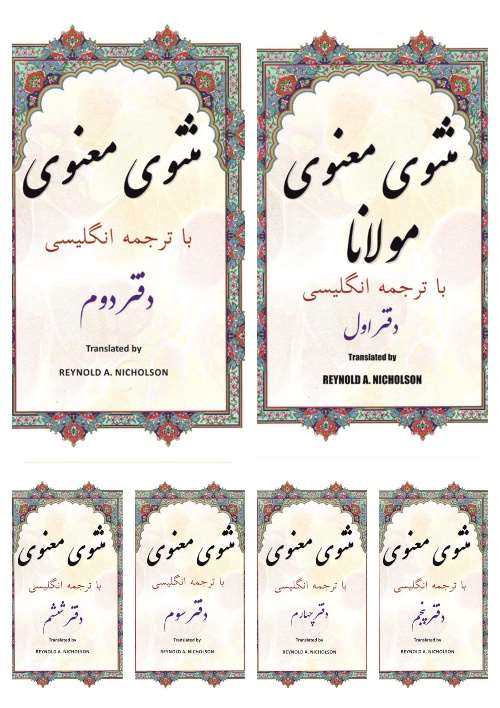
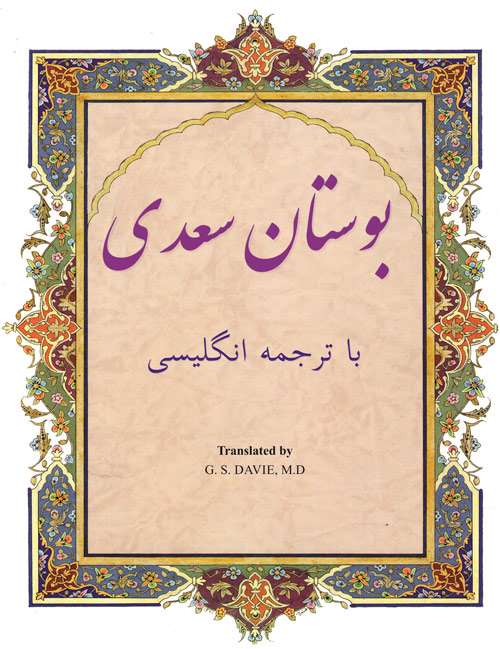
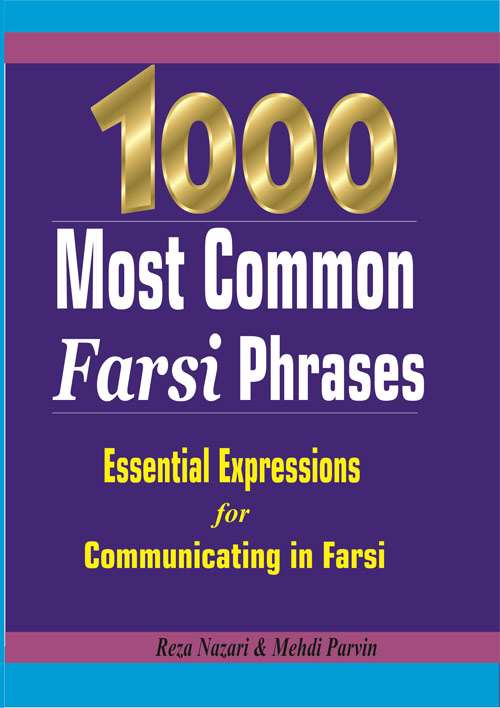
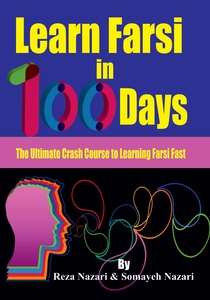






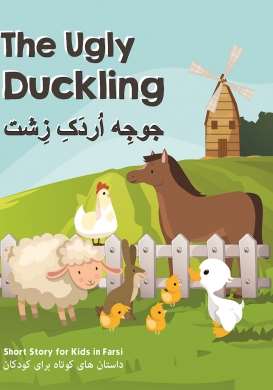
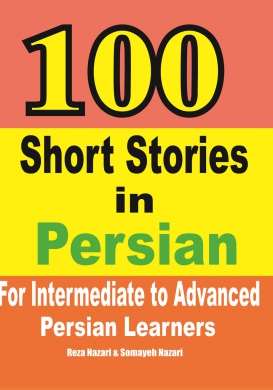
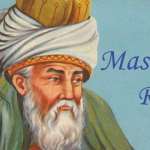
What people say about "Explanation of the Tradition"?
No one replied yet.